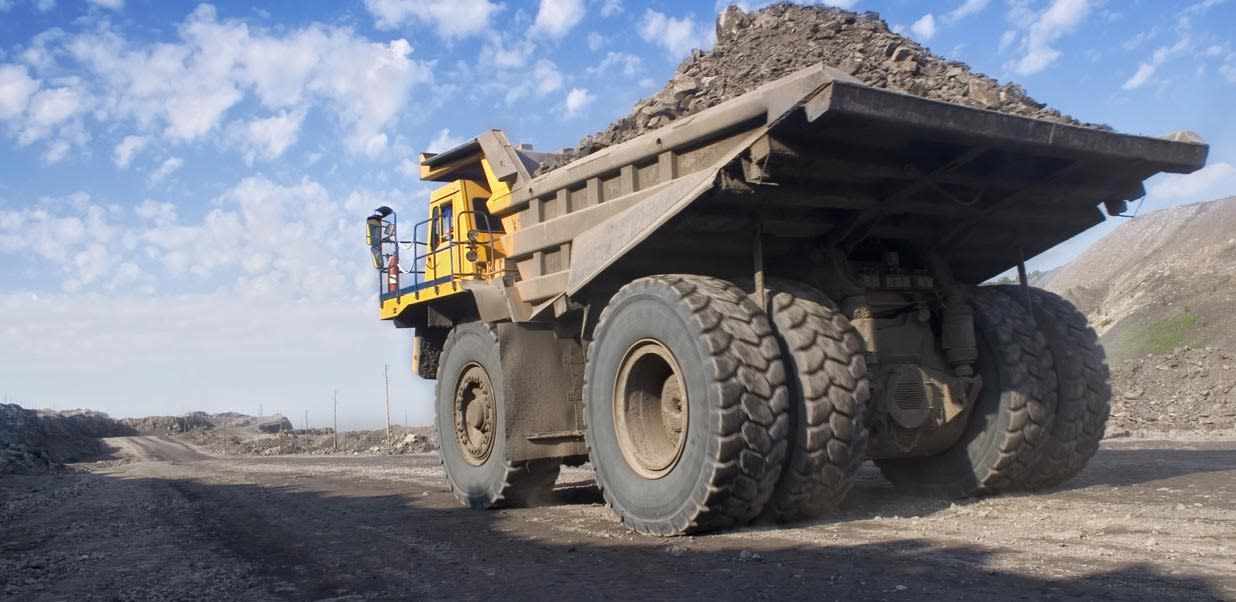Glencore has reported a 33% drop in first-half underlying cash profit (EBITDA) to $6.3bn. Both the Marketing and Industrial segments saw declines, largely a result of the normalising energy markets and associated drop in coal prices.
Having spoken with shareholders, and following the acquisition of Elk Valley, plans to spin off the coal business have been scrapped.
Lower net capital expenditure and taxes meant free cash flow only took a small dip from $1.2bn to $1.1bn. Net debt, including leases, was $3.6bn compared to $4.9bn at the start of the year. With the coal assets being retained, the net debt cap has been pushed back up to $10bn.
The shares were broadly flat in early trading.
Our view
Despite being a global miner, energy and coal markets continue to drive performance lower. Prices have come down significantly over the first half from the highs seen during last year’s energy crisis, and its weighing on the bottom line. But context is key, last year was an anomaly, and the business is still performing well.
Glencore has a large industrial portfolio producing metals and minerals. Industrial assets represented over three-quarters of cash profit last year. The bulk is its coal portfolio but there’s also a big metals and minerals operation, including copper and nickel. These metals are essential for global efforts to reduce carbon emissions and Copper in particular is an area of focus for Glencore.
There's also a marketing business, which acts as a global commodity marketplace and continues to outperform its longer-term targets. Glencore earns a slice of profit capitalising on different prices for the same commodities in different locations or time periods. Performance relies more on volatility in the market than whether prices are high or low, which offers a nice degree of diversification.
It's important to flag now, the Marketing business is extremely complex with a lot of moving parts. Investors should be aware of the risk that brings.
Glencore is one of the few major minors that’s retained its thermal coal assets. The acquisition of Elk Valley Resources (EVR) and its steelmaking coal portfolio paved the way for discussions about a complete separation of coal. EVR is a great asset. It’s one of the world’s leading steelmaking coal businesses (not to be confused with thermal coal).
But shareholders have had their say, and they want coal (both thermal and steelmaking) to remain. It’s easy to see why, its highly cash generative and an orderly reduction of the thermal coal business has been approved as part of Glencore’s latest climate action plan.
Another benefit of retaining coal is the net debt cap can be pushed back to its old level of $10bn. Given the reduction over the half (currently $3.6bn), there’s plenty of scope for capital to be deployed to take the balance sheet closer to that upper cap. That could come from acquisitions or shareholder returns, nothing is guaranteed.
Glencore has one of the highest copper exposures compared to peers, and with a clear plan in place for the coal portfolio, we think the future looks brighter than it has for some time. We must note recent bribery and market manipulation charges and there's work needed to restore investor confidence in this regard.
Environmental, social and governance (ESG) risk
Mining companies tend to come with relatively high ESG risk. Emissions, effluences and waste, and community relations are key risk drivers in this sector. Carbon emissions, resource use, health and safety and bribery, and corruption are also contributors to ESG risk.
According to Sustainalytics, Glencore's management of material ESG issues is strong.
Glencore's already paid $1.1bn in fines relating to past governance issues, but anti-corruption policies have improved more recently. A new 2024-26 climate action plan was recently approved by 90% of shareholders, which includes plans for a phasing down of thermal coal operations. There’s also a 2050 net-zero carbon emissions target is in place along with interim plans to reduce direct, indirect and supply chain emissions by 15% and 50% by 2026 and 2035.
Glencore key facts
All ratios are sourced from Refinitiv, based on previous day’s closing values. Please remember yields are variable and not a reliable indicator of future income. Keep in mind key figures shouldn’t be looked at on their own – it’s important to understand the big picture.
This article is not advice or a recommendation to buy, sell or hold any investment.No view is given on the present or future value or price of any investment, and investors should form their own view on any proposed investment.This article has not been prepared in accordance with legal requirements designed to promote the independence of investment research and is considered a marketing communication.Non - independent research is not subject to FCA rules prohibiting dealing ahead of research, however HL has put controls in place(including dealing restrictions, physical and information barriers) to manage potential conflicts of interest presented by such dealing.Please see our full non - independent research disclosure for more information.


